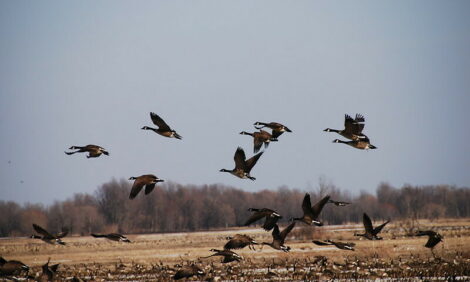



US egg industry braces for spring migration
UEP has developed an HPAI Task ForceIt has been over a year since the first Highly Pathogenic Avian Influenza (HPAI) detection in February 2022 on a US egg farm, according to a news release from United Egg Producers (UEP). Egg farmers across the country continue to evaluate biosecurity plans and implementation in anticipation of active spring migration.
February 2023 has brought four commercial detections and 15 backyard detections, totaling 190 thousand birds affected. Between March, April and May of last year, HPAI detections peaked in the US with a total of 175 commercial detections and 165 backyard detections, and 2023 projects similar levels of virus saturation in migratory bird populations.
During last month’s UEP meetings in Atlanta, the Animal Health and Biosecurity Committee passed a motion to form an HPAI Task Force to evaluate additional measures the industry could take to lower the risk of infection. The Board also approved the motion, and the Task Force immediately began work. The group has developed several additional paths and is focusing on enhancing existing biosecurity plans and implementation. UEP’s PR team is in the process of packaging these materials for dissemination to the industry once completed.
The HPAI Task Force is also working on additional measures and considerations, including reducing susceptibility to infection or improving the immunity of commercial poultry; technologies on predictive modeling of risk; enhancing epidemiology work to clarify assumptions of transmission; programs for active surveillance to test migratory birds left behind; how a vaccination program would look and operate; and a real-time reporting system of positive detections to the industry. UEP and the Task Force will continue working on these items over the coming weeks and months.
Animal and Plant Health Inspection Service (APHIS) leadership has informed UEP that the Epidemiology Report from the current outbreak has cleared and is pending publication. UEP will meet with the agency later this week to discuss environmental sampling around non-negative farms immediately following a detection to help determine if the virus can be found outside air inlets or on other surfaces of the infected barn.










